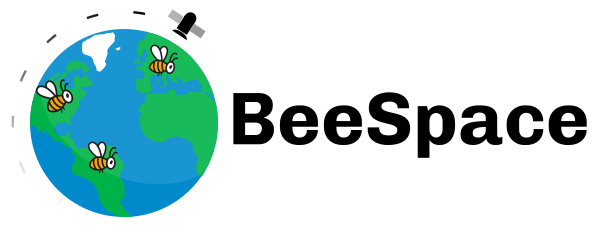
Objectives of the service

BeeGuard offers an innovative solution that leverages automatic monitoring of bees’ activity and health to support decision-making in two key markets: beekeeping optimization and land biodiversity impact evaluation. This dual approach aids farmers in adopting agro-ecological practices through a comprehensive biomonitoring service.
The BEESPACE project improve our offering to farmers and beekeepers by equipping our devices with satellite communications. To achieve this, we are working with KINEIS and their low-frequency communications technologies, which guarantee coverage even in areas with dense vegetation.
In addition, we are integrating satellite imagery analysis of land use into our application. This data will enable users to better understand the environment in which their bees operate and better characterise the impacts they experience. KERMAP is supporting us in meeting this need.
Users and their needs
The “Beekeeping DST service“ includes a set of sensors installed on hives and decision support tool application software to utilize the collected data. Beekeepers often lack external advisors for daily management. Our solution provides remote monitoring of colony activity and health, aiding beekeepers in making informed decisions regarding apiary management. It enables beekeepers to remotely assess bee life and needs using sensors on selected hives.
The “Biodiversity Biomonitoring service” solution measures biodiversity impact KPIs using sensors to continuously monitor bee activity and health, complemented by software services that generate reports after data processing. This allows farmers in various sectors (food, industry, pharmaceuticals, cosmetics, and agroforestry) to evaluate food availability for pollinators and detect abnormal bee depopulation events.
The “Pollination Biomonitoring service” service evaluates managed pollination services in terms of context and performance. It helps farmers assess the pollination services typically purchased from beekeepers by determining factors such as the attractiveness of surrounding land to pollinators, climatic conditions, foraging activity effectiveness, and potential conflicts between crop management and pollinators.
Currently, our service mainly covers apiaries in Europe. The BeeSpace project allows us to extend our offer to tropical countries and large lands countries (French overseas regions, Canada, US).
Service/ system concept

Space Added Value
The solution, leveraging the Satcom IoT Kineis service, provides global communication coverage, enabling the monitoring of all apiary locations, including those on international exotic crop farms (bananas, coffee, cacao) or large lands in Canada and the US. Additionally, SatEO analysis of monthly land use within the bee foraging radius helps farmers efficiently analyze biodiversity compensation opportunities and floral diversity, especially in fragmented landscapes or areas affected by climate change.
Current Status
The project began in August 2025; several workshops are ongoing with partners and users to define their needs and the requirements of the system. The BDR is scheduled for 6 October 2025.
Prime Contractor(s)
Subcontractor(s)





